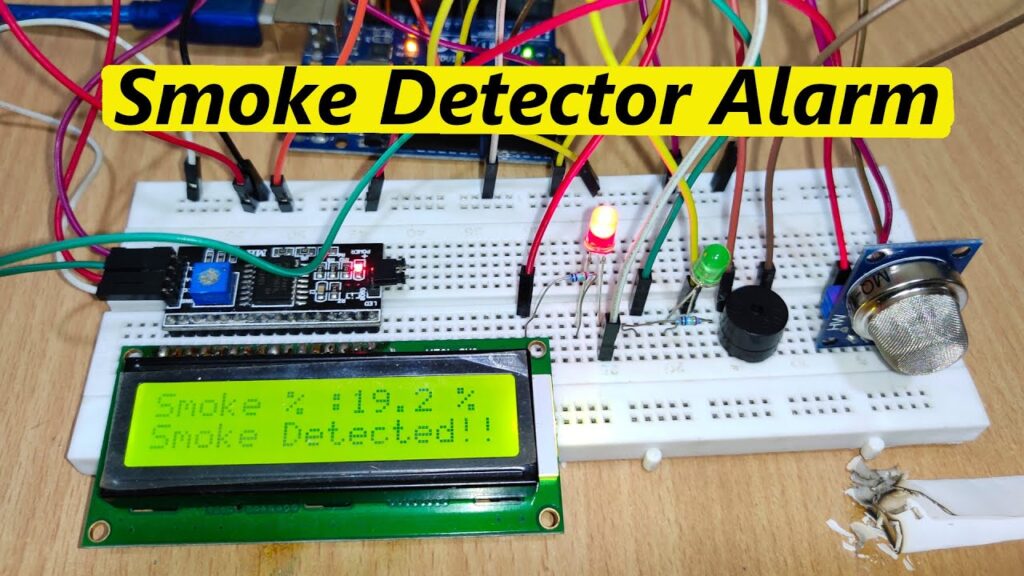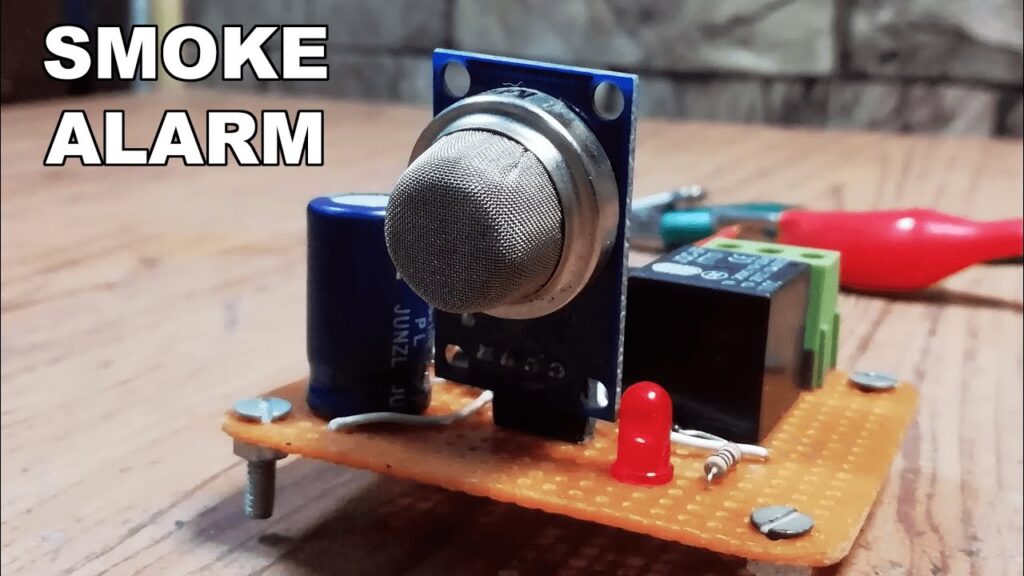Smart Smoke Detector – DIY Electronics Project
Project Description:
A Smart Smoke Detector is an intelligent safety device that detects the presence of smoke and potentially harmful gases in the environment using a gas sensor like the MQ-2. Unlike traditional detectors, it not only triggers a local alarm using a buzzer and LED but also sends real-time alerts to your smartphone or email via Wi-Fi. This makes it ideal for modern smart homes, allowing remote monitoring and quick response to fire hazards even when you’re away. It can be powered by a microcontroller such as an ESP8266 or ESP32 and can integrate with IoT platforms for enhanced functionality.

🧩 Electronics Components:
| Component | Description |
|---|---|
| MQ-2 Smoke Sensor | Detects smoke, LPG, and combustible gases. |
| Microcontroller | ESP8266 / ESP32 (Wi-Fi capable) or Arduino Uno. |
| Buzzer | Provides loud audible alert in case of smoke detection. |
| LED (Red) | Visual indicator for smoke alarm. |
| OLED Display (Optional) | Displays live smoke/gas levels and status. |
| Resistors | For LED and sensor interfacing (220Ω, 10kΩ, etc.). |
| Breadboard & Wires | For building and testing the circuit. |
| Power Supply | USB, battery, or 5V DC source. |

⚙️ Working Principle:
- Smoke Detection: The MQ-2 sensor continuously monitors air for smoke or gas particles.
- Signal Processing: Sensor data is read by the microcontroller. If gas concentration exceeds the threshold:
- Buzzer sounds
- Red LED flashes
- OLED screen (optional) shows real-time gas levels
- Wi-Fi module sends notification to user’s smartphone/email via services like Blynk, IFTTT, or a custom app
- Reset Mechanism: The system resets when smoke levels return to normal.
⭐ Key Features:
- Real-time smoke/gas detection
- Audio & visual alerts
- IoT-enabled remote notification (SMS, email, app)
- Portable and battery-operated option
- Scalable for full smart home integration
- Low-cost and beginner-friendly build
🛠️ Project Expansion Ideas:
- Add a temperature sensor to detect fire hazards.
- Integrate with home automation systems (like Alexa, Google Home).
- Use SMS module (SIM800L) for areas without Wi-Fi.
- Include battery backup and power failure alerts.
